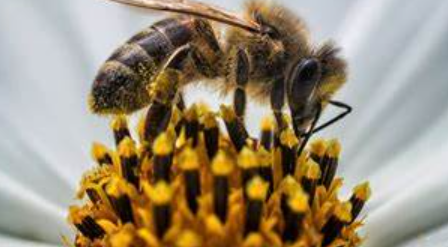In the bustling orchestra of life on Earth, insects play a vital role, yet their silent plight often goes unnoticed amidst grander environmental concerns. These tiny beings are the unsung heroes of our ecosystems, contributing to pollination, nutrient recycling, pest control, and serving as a crucial food source for countless other creatures. However, alarming reports indicate a rapid decline in insect populations worldwide, threatening ecological balance and human well-being. In this blog, we delve into the urgent need to save insects from their global decline and explore actionable steps to protect these invaluable creatures.
**The Insect Crisis Unveiled:**
Recent studies have sounded the alarm, revealing staggering declines in insect populations across diverse habitats, from pristine rainforests to urban landscapes. Factors such as habitat loss, pesticide use, climate change, and light pollution are driving this decline, pushing many species to the brink of extinction. The ramifications of this decline extend far beyond entomological circles, impacting entire ecosystems and posing significant risks to food security and human health.
**Why Should We Care?**
Some may underestimate the importance of insects, dismissing them as mere pests or inconsequential beings. However, the truth is far from it. Insects are integral to the functioning of ecosystems, providing essential services that sustain life as we know it. For instance, bees and other pollinators facilitate the reproduction of flowering plants, including many crops that humans rely on for food. Without them, agricultural productivity would plummet, leading to food shortages and economic losses. Furthermore, insects play a crucial role in breaking down organic matter, nutrient cycling, and controlling pest populations, thereby maintaining ecological balance.
**Actionable Steps to Preserve Insects:**
- **Habitat Preservation:** Protecting natural habitats such as forests, grasslands, and wetlands is paramount for safeguarding insect biodiversity. Conservation efforts should focus on creating and maintaining interconnected green spaces to provide refuge for diverse insect species.
- **Reducing Pesticide Use:** The indiscriminate use of pesticides poses a significant threat to insect populations, causing direct mortality and disrupting ecosystems. Implementing integrated pest management strategies, promoting organic farming practices, and employing targeted pesticide applications can mitigate the adverse effects on insects while ensuring agricultural productivity.
- **Promoting Native Planting:** Cultivating gardens and green spaces with native plant species can provide crucial habitat and food sources for local insect populations. Native plants have evolved alongside native insects and are better suited to support their needs compared to exotic species.
- **Light Pollution Control:** Artificial light at night disrupts insect behavior, navigation, and reproductive cycles, leading to population declines. Implementing light pollution reduction measures such as using shielded outdoor lighting and minimizing unnecessary illumination can help mitigate these effects.
- **Educational Outreach:** Raising awareness about the importance of insects and the threats they face is essential for fostering public support and engagement in conservation efforts. Educational initiatives targeting schools, communities, and policymakers can empower individuals to take action and advocate for insect-friendly policies.
**The Time to Act Is Now:**
In the face of escalating biodiversity loss and environmental degradation, protecting insects must become a global priority. Every individual, from policymakers to backyard gardeners, has a role to play in preserving these humble yet indispensable creatures. By taking proactive measures to conserve insect habitats, mitigate threats, and promote coexistence, we can ensure a brighter future for both insects and humanity. Let us unite in our efforts to save our tiny guardians and safeguard the intricate web of life that sustains us all.

